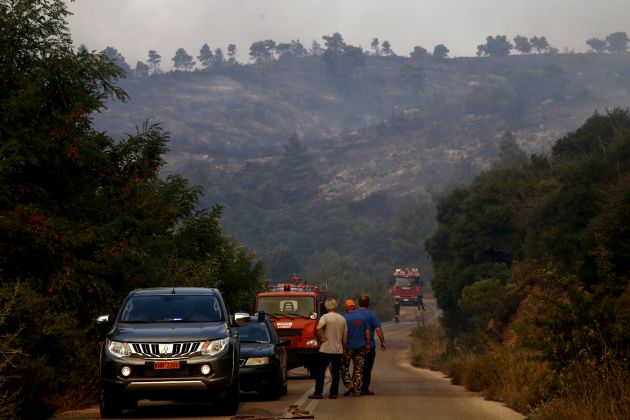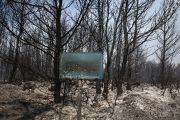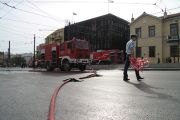-
 EBRD reports highlights demographic headwinds Greece has to navigate
EBRD reports highlights demographic headwinds Greece has to navigate
-
 OECD report highlights stark contrasts in health system
OECD report highlights stark contrasts in health system
-
 Greece’s 14–29s: Ambitious, anxious and lacking trust
Greece’s 14–29s: Ambitious, anxious and lacking trust
-
![Photo by Myrto Papadopoulos [www.myrtopapadopoulos.com] Photo by Myrto Papadopoulos [www.myrtopapadopoulos.com]](resources/toolip/img-thumb/2013/11/05/younggreeks_1000_myrto_0411-small.jpg) Survey charting young voters presents diverse fractures and politics
Survey charting young voters presents diverse fractures and politics
-
![Photo by Can Esenbel [http://www.mundanepleasure.com/] Photo by Can Esenbel [http://www.mundanepleasure.com/]](resources/toolip/img-thumb/2014/02/12/peopleblur_agora_esenbel-small.jpg) Survey attempts to map current contours of progressivism in Greece
Survey attempts to map current contours of progressivism in Greece
-
 Greeks crying out for political change but doubt it will happen, poll finds
Greeks crying out for political change but doubt it will happen, poll finds
Politicians have commissioned, and largely ignored, multiple reports on wildfires

In February 2019, the then leader of the opposition Kyriakos Mitsotakis welcomed the publication of an expert committee report on the management of forest fires in Greece, calling its recommendations “a blueprint for the steps we will follow”. The so-called Goldammer report was commissioned in the aftermath of the deadly Mati wildfire of the previous summer, for which Mitsotakis laid the blame squarely on the incumbent SYRIZA government.
Mitsotakis was elected Prime Minister a week before the first anniversary of Mati, in no small measure thanks to the public anger stemming from SYRIZA’s mismanagement of the fire, which resulted in the loss of over 100 lives. Two years later, his New Democracy government is faced with its own wildfire crisis. According to an early estimate, wildfires burning on several fronts in Greece’s central and southern regions have destroyed close to 65,000 hectares of forest, cultivated land and homes over the past week – three-and-a-half times the size of the burnt area recorded over the entire 2018 fire season. At 46,000 hectares, the wildfire still burning in north of the island of Evia is already the most destructive since national records began.
New Democracy came to power promising to deliver a more competent government than its predecessor, having made specific campaign pledges to reorganise the official response to civil emergencies and natural disasters. In the intervening two years it has staked its reputation on the management of the Covid-19 pandemic. The unfolding fire disaster, however, naturally raises the question of how much has changed since 2019, and how far ND has gone in improving Greece’s wildfire preparedness.
The political debate
As public frustration grows at the authorities’ seeming inability to bring the fires under control and protect property and natural resources, the government has opted to stress the unusualness of the conditions that led to the eruption of the fires, which were preceded by a record heatwave lasting several days. Mitsotakis and his officials have also repeatedly stressed the contribution of the evacuation alert system which they implemented in 2019, which they credit with saving human lives despite the extent, duration and ferocity of the fires.
Opposition parties, however, have accused the government of lack of preparedness, lack of investment in resources and equipment, and of focussing almost exclusively on evacuations rather than getting the fires under control.
By the end of the week, the debate had focussed quite specifically on Greece’s aerial firefighting capabilities. A group of SYRIZA MPs tabled a question in parliament asking the government to detail the number and types of firefighting planes and helicopters available for deployment, while over the following days the party’s spokespeople repeatedly requested updates on how many of them were deployed and in what locations.
Minister of State Akis Skertsos responded with a post on social media, which featured a comparative table showing Greece ranking ahead of other Mediterranean countries in availability of aerial firefighting capacity relative to population, while claiming that the size of the fleet had been boosted by 45 pct since 2018. Skertsos added that the Civil Protection budget had been boosted by 56 pct, and the number of firefighters had increased by 15.6 pct.
This exchange, which has prompted a flurry of esoteric debates on airplane specifications and service records, only exemplifies how little has changed in the way the Greek political system perceives and manages the perennial - and worsening – risk of wildfires.
Missed opportunities
Back in 2019, after thanking the Goldammer committee for their work, Mitsotakis recalled in front of the assembled media that during his tenure as Chairman of the Parliament's Committee on the Environment, he had commissioned an inquiry into the devastating wildfires of 2007. Mitsotakis noted that “several of the findings unfortunately still apply today”, adding, however, that "we now know what we have to do, and it remains to move swiftly to implementation”.
To return to the issue of firefighting planes, which is just one of many: In 2007, according to one of the most detailed reports on the subject, Greece was already equipped with the largest airborne firefighting fleet in Europe relative to its size. However, the headline recommendation of the parliamentary inquiry commissioned by Mitsotakis was to do not with firefighting equipment, but with institutions – it was a call to upgrade fire prevention and reverse the separation between prevention and suppression responsibilities which had been implemented through a landmark piece of legislation 1998. As the prime minister’s remarks imply, the report’s recommendations went largely unheeded.
More than a decade later, the Goldammer report reiterated that call even more strongly, and urged radical reform of the overall approach to managing forest fire risk.
Most of the weaknesses in Greece’s fire defences identified by the report could be described as systemic: a lack of strategic and local-level planning; a proliferation of agencies with overlapping responsibilities; a culture of political interference; overwhelmingly disproportionate spending on fire suppression compared to prevention.
The report challenged the automatic assumption that an increase in funding would improve Greece’s wildfire management capabilities, noting that the doubling of funds over recent decades coincided with an increase in the number and destructiveness of wildfires. The experts called instead for a more balanced distribution of available funds between fire prevention and suppression, and an integrated national plan overseen by a dedicated multi-disciplinary agency.
The report’s detailed recommendations included strengthening the role and capabilities of the forestry service as the body charged with fire prevention; creating a well-trained seasonal firefighting force; better training, support and integration of volunteer firefighters; more use of state-of-the-art technology at all stages of prevention and suppression of fires.
Among its many observations is one which seems pertinent to the ongoing political dispute: the report was critical of what it described as an obsession with expensive and “over-rated” air power, and it recommended shifting the focus to improving the ground-based response.
Neither the 2007 report nor the Goldammer report have been mentioned by politicians on either side in the ongoing exchange - including their respective sponsors - while the issue has been framed almost exclusively in terms of operational civil emergency response.
The ND reforms
Despite Mitsotakis’s polite acknowledgements of Goldammer, New Democracy in fact took a very different tack from the start. In 2019 it commissioned its own expert report. The so-called Synolakis report focussed more narrowly on what went wrong with the evacuation of Mati, and made recommendations to improve readiness, with a specific focus on preventing loss of human life.
Although framed in technocratic terms, the choice was clearly political: limiting the scope of the report so as to focus on the proximate causes of the specific incident and the immediate political responsibilities, rather than on the long-term systemic factors spanning several administrations. The report, moreover, has clearly shaped ND’s policy approach in government, very possibly exacerbating the existing system’s dysfunctions.
Under ND, forest fire management has been integrated in a single line of command under Civil Protection, which in turn belongs to the Ministry of Citizen Protection – a super-ministry which has grown to absorb a wide array of responsibilities, including, briefly, migration and asylum.
The 2020 Civil Protection Law (4662) brought together a range of emergency response functions under the Directorate of Civil Protection, which was given more staffing resources and greater discretion over hiring, budgets and spending.
One of the first announcements by its head, Nikos Hardalias, a political appointee close to Mitsotakis, was the hiring of 1,300 seasonal firefighters for the 2020 wildfire season. In 2021, he announced a 17 pct increase in the budget for the firefighting season and another 3,000 seasonal firefighter hires.
Hardalias also published Civil Protection’s proposal for the AIGIS project - a 1.76-billion-euro procurement programme to replace and upgrade firefighting planes, billed as “the largest civilian weapons programme to date”. Though this does not practically affect the ongoing crisis, the plan underlines that far from starving the aerial firefighting fleet as the opposition implies, or questioning its use as the experts have recommended, the government has doubled down on it.
Fire prevention has also taken on a narrow meaning in light of Mati, with the focus shifting almost entirely to vegetation clearance around built-up areas.
For the current year, a budget of just under 17 million euros was allocated to local authorities to fund fire prevention work such as scrub clearance and forest road maintenance, topped up by a further 2.84 million euros of emergency funding as the fire season approached.
Meanwhile, the forestry service, which prior to 1998 provided most of the expertise for fire prevention and firefighting, has been almost entirely excluded from the picture. Just 1.4 million euros was allocated to the forestry service in 2021 for fire prevention in forested areas nationwide, while the public sector foresters’ union claims the last hires into the service were made in 2008.
The new Civil Protection structure was also intended to address problems of inter-agency coordination, which were blamed for the operational debacle at Mati. Even here, however, the evidence so far has not been reassuring.
A preview of the issues involved was provided by snowstorm Medea in February 2021. After falling trees brought down power lines causing extensive blackouts, a row erupted between regional and local government and the forestry service as to whose responsibility it was to cut back vegetation. In many suburbs of Athens, the tree branches felled or fallen in the storm remained by the roadsides into June, when the PM called a series of emergency preparedness meetings for the wildfire season.
In June, the Directorate of Civil Protection stepped in with operation “Dryades” to clear undergrowth from a number of high-risk areas declared to be in a state of emergency – while still claiming that it was not its own responsibility.
The 2021 fires are clearly not Mati. Several large fronts burning concurrently in widely separated parts of the country, including the outskirts of Athens, pose a much bigger challenge operationally. The response so far, however, suggests that the authorities - and particularly the political leadership - have been preparing to fight the last war, rather than the next one.
The experience of Mati – the evacuation alert system put in place subsequently, no doubt combined with the freshness of the memory in peoples’ minds - has so far saved many lives. However, that should not absolve those in charge of responsibility for the overall handling of events. No-one would describe the authorities’ response so far as a fire management success, nor have confidence in the current system - or those in charge of it - to deal with the increase in extreme events expected under even the most conservative climate change scenarios.
 PM prioritises saving lives as govt fire strategy comes under more scrutiny
PM prioritises saving lives as govt fire strategy comes under more scrutiny  Criticism of authorities' response intensifies as wildfires continue to rage
Criticism of authorities' response intensifies as wildfires continue to rage  PM sets criticism aside, highlights unprecedented conditions behind fires
PM sets criticism aside, highlights unprecedented conditions behind fires